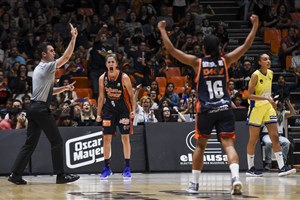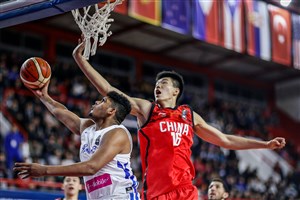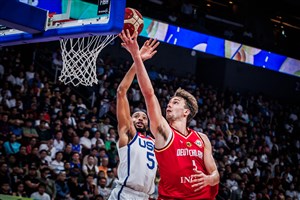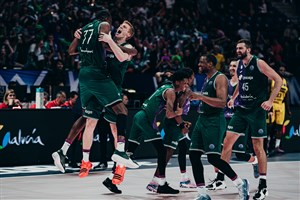
Winning is the only thing unless it's not
CHARLOTTE (Steve Goldberg's Wheel World) - The world championship rosters are finalized and there's a lot of basketball being played these days, games that mean nothing and everything at the same time.
Last week, you would find the Netherlands women's wheelchair basketball team in Colorado for a series of games with the USA and Australia. This week they are in Sheffield, England where, along with the Dutch, Great Britain is hosting the women's teams from Canada, Japan, and Germany, as well as the men's teams from Canada, Japan, Netherlands, Poland, and Spain.
They're calling it the Continental Clash.
TOUR | The Australian Gliders have landed in Colorado Springs for their final tournament ahead of the @_IWBF World Championship with a six-game series scheduled against the Netherlands, Canada and USA: https://t.co/t73YLkx8CO #GoGliders pic.twitter.com/DksBTFsl1j
— Basketball Australia (@BasketballAus) June 26, 2018
I heard from GB's women's coach Miles Thompson just before his team would take the court and win their first game against Japan.
"No one remembers who won what summer friendly," he said. "There is no legacy. Then again, it’s important to practice winning."
So, while winning these tune-up games is not of consequence, the habit of knowing how to win is.
This is something Thompson has been working on since taking over responsibility for the British women's program just over four years ago. The GB women had never reached the level that had become traditional for the men but that's been changing.
After a 6th place finish in the 2010 Worlds at home in Birmingham, they went 7th in the 2012 London Paralympics and matched that in the 2015 Worlds in Toronto. That changed dramatically in Rio with their highest-ever placement, just off the podium in 4th.
No one remembers who won what summer friendly. There is no legacy. Then again, it’s important to practice winning.
They are learning how to win but these games are more about finding the right mix, the right chemistry in different situations.
"We look if teams can stop us when we’re at our strength. We must constantly build during the summer friendlies."
One thing Thompson has learned and wants to further ingrain is, "When we play without fear and attention to detail, we are as good as there is."
We are delighted to announce the selected 12 athletes for the GB Women’s World Championships Squad in Hamburg, 16-26 August. Congratulations to each of the players selected 🇬🇧🏀🏆 https://t.co/dUAOfhqdBX pic.twitter.com/E08EJgGYZd
— BritWheelchairBball (@BritWheelBBall) June 15, 2018
Marc Antoine Ducharme, coach of the Canadian women's team, concurs. "The first thing we look for in these games is to create chemistry in our different lineups. We want to see if our tactics work against different teams and make adjustments if needed."
"Winning is not the most important thing. We select some games to give experience to our new players, to play different lineups and see how that goes and try different tactical (approaches)."
Like Thompson, he understands the psychology of winning. "We select some game to win too, so it important to win this game or play well and give 100% in that kind of game to build our confidence for the world championships."
He says that his team is young with only six on the roster from the Rio squad. They will seem old compared with a side that will be almost completely different from two years ago.
Day 4⃣ Recap: Canadian Women Win Bronze Against the Hosts on Day 4 of 2018 Continental Clash; Canadian Men Win Third Straight https://t.co/YZqkrOavny pic.twitter.com/vJ5zixQ2yY
— WheelchairBballCAN (@WCBballCanada) July 6, 2018
When I look at the rosters of the usual suspects who will compete for the women's hardware, I see a lot of familiar names from Paralympic play. Not so much with the American squad which will feature only two veterans of the Rio gold medal run.
The U.S. team is so young at the moment, it feels like a junior team. The average age is 18.5 years old.
This world championship will be competitive test kitchen for the Americans that Toronto and Rio were for the Brits. Whether more veterans are on the team when Tokyo rolls around is an unknown but what is certain is that an experienced pool for elite players will be much richer.
USA coach Trooper Johnson has named Shelby Gruss and Morgan Wood as captains. As the two oldest players on the team at 24 and 26 respectively, additional leadership is sure to come from gold medalists Rose Hollermann and Abbie Dunkin, teammates of Wood at the University of Texas-Arlington.
Though the American women are the defending Paralympic champions, they won't be the favorites in Hamburg. Those would have to be hosts Germany along with Australia, Canada, Great Britain, and the Netherlands who, along with their experience, also benefit from far more extended training as a group.
This is nothing new as the NWBA has traditionally worked with more limited resources. Still, the women have won three of the last four Paralympics as well as the 2010 World title, while the USA men have always been a top four side but have only regained Paralympic gold in 2016 after a 28 year drought.
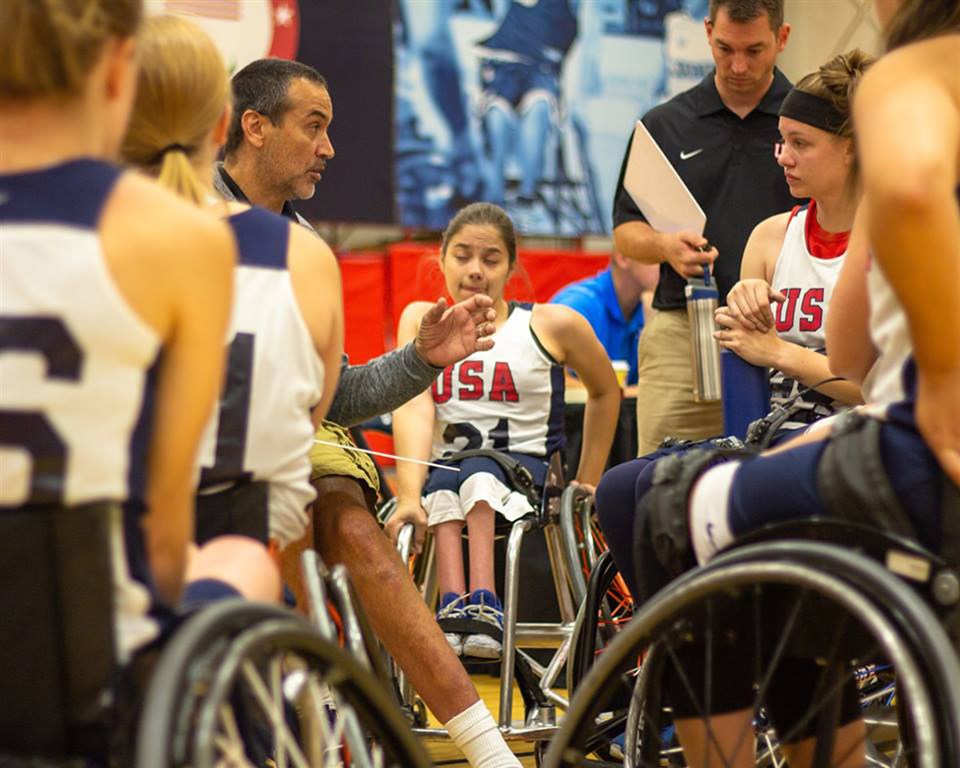 USA coach Trooper Johnson talks to his team during a break in action. (Photo courtesy of the NWBA)
USA coach Trooper Johnson talks to his team during a break in action. (Photo courtesy of the NWBA)
"Most of our training is considered "decentralized", wrote Johnson in an online post, "in the fact that we are only together one week a month. The rest of the top teams we will be facing are in residential, or semi-residential programs within their training centers."
"Most of the top-tier teams will have played 25-30 games together prior to the World Championships, and coming into (last) weekend, both opponents had played over 15 games already."
That goes for the American men as well, but they will benefit from having 10 Rio gold medalists on the roster.
In their tune-up games last weekend, the USA women grew from match to match, losing them all before ending on a win over Australia.
It was the first win for the team this year and Johnson said it, "allowed them to see the potential they have when they work together and apply themselves for a full 40 minutes."
He then added, "We still need to figure out Holland."
He will get additional opportunity to do that on the way to Hamburg when his team will stop in the Netherlands for some tune-up games.
By that time, learning how to win will be a much great priority.
Steve Goldberg
FIBA
FIBA's columnists write on a wide range of topics relating to basketball that are of interest to them. The opinions they express are their own and in no way reflect those of FIBA.
FIBA takes no responsibility and gives no guarantees, warranties or representations, implied or otherwise, for the content or accuracy of the content and opinion expressed in the above article.
To help make this column as inclusive as possible, please send any national or international event information, story suggestions, or comments to wheelworldmail@gmail.com.



